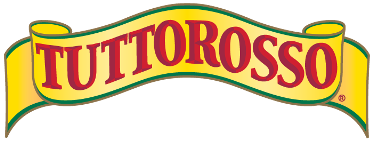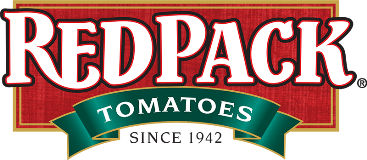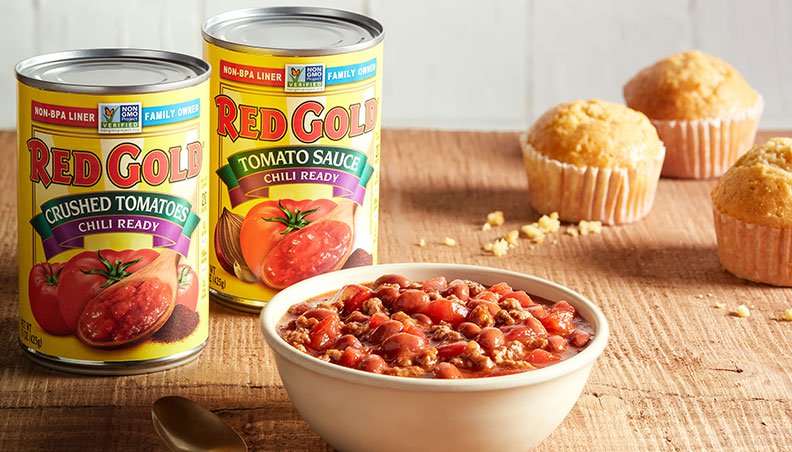
Tomato Talk
Welcome to "Tomato Talk" from Red Gold Tomatoes, the trusted source for all your tomato needs. With over 80 years of experience as a family-owned company, we are tomato experts dedicated to sharing our knowledge with you. From the history of this delicious fruit to its culinary uses, we provide valuable information for seasoned chefs and home cooks alike. Learn about different tomato varieties, selecting the best ones, proper storage techniques, and preparation tips. At Red Gold Tomatoes, we prioritize family, experience, and expertise to meet all your tomato-related needs. Join us as we delve into the world of "Tomato Talk" and discover the joy it brings to your kitchen and life.

Are Tomatoes a Fruit or Vegetable? A Mystery Finally Solved
If you have ever sat down and pondered whether a tomato is a fruit or vegetable, you are not alone.
The fruit vs. vegetable mystery has been the subject of furious debate over the years, with strong opinions being expressed on both sides of the argument!
The History of the Tomato
Let’s start by looking at the history of the tomato. The wild tomato species originally came from the Andes Mountains in South America, specifically Peru and Ecuador. It was believed to have been domesticated in pre-Columbian Mexico and is named after the Náhuatl word "tomatl." The tomato was brought to Europe by the Spanish in the 16th century, and it was primarily the Spanish and Italians who embraced it as a food (we’ll get to the fruit or vegetable debate in a bit). In France and northern Europe, the tomato was initially grown for its decorative appeal and was met with skepticism as a food because botanists recognized its relation to toxic plants like belladonna and deadly nightshade.
Did you know that the Italians once referred to tomatoes as "pomodoro," meaning "golden apple"? Similarly, the French had their own name for tomatoes, calling them "pomme d'amour," which translates to "love apple." This quirky nickname was given due to the belief that tomatoes had aphrodisiacal properties. Many called tomatoes “wolf peaches” as well.
Now let’s look at the journey of tomatoes to North America. Originally brought over from Europe, Thomas Jefferson himself cultivated them at Monticello in 1781. While Louisiana embraced tomatoes as a food source as early as 1812, it was not until around 1835 that the northeastern states jumped on board, and it wasn't until the early 20th century that tomatoes truly captured the hearts and taste buds of the American consumer, gaining widespread popularity. Today, this remarkable fruit – yes, we call it a fruit - is commercially grown across the globe.
Now that we have a good understanding of the history of the tomato, the big debate among many is this: Is it a fruit or a vegetable? In fact, did you know there was even a Supreme Court case about it back in the 1890’s? No? Well, let’s take a further look at this “landmark” case.
Supreme Court weighs in on the tomato debate: Fruit or vegetable?
Back in 1893, in Nix v. Hedden, Supreme Court Justice Horace Gray made a conclusive statement: tomatoes are not fruit. While botanically they may be considered a fruit, Gray argued that - in the eyes of consumers - they are seen as vegetables. This ruling came about due to a tariff act that imposed a tax on whole vegetables, prompting a six-year legal battle that eventually reached the United States Supreme Court.
So, what happened, you ask? The nation’s highest court unanimously supported the notion that tomatoes should be classified as vegetables for trade and commerce purposes. This decision highlighted the fact that tomatoes are typically consumed as part of main meals, not as desserts. Despite this ruling, the tomato's identity remains a hot topic of debate in various states across the United States.
Though the Supreme Court supposedly “settled” the tomato (fruit or vegetable?) debate, the discussion surrounding its identity continues to engage people and policymakers alike. In 2005, the tomato controversy resurfaced in New Jersey during discussions about naming it the state vegetable (which it eventually became). Other states have taken different stances on this issue, with some declaring the tomato as both a fruit and a vegetable, and others (Ohio and Tennessee) naming it their state fruit. The classification of tomato juice also varies from state to state.
Will this great national dispute ever end?
In the end, the perception of what some people consider what a fruit is and what a vegetable is - whether in the kitchen or in the courtroom - boils down to how that product is typically utilized.
What is the Difference between Fruit & Vegetables Anyway?
A fruit is the essential dispersal mechanism for a plant's seeds. It is the edible reproductive body of a seed plant. In simpler terms, any part of a plant that contains seeds is considered a fruit. Even unexpected examples like tomatoes qualify as fruit because they have seeds. This may lead to confusion about what qualifies as a fruit, such as eggplant, okra, cucumbers, zucchini, peppers, squash, peas, and sweet corn.
To clarify, let's establish a definition for vegetables.
The true definition of a vegetable may surprise you. It encompasses any edible part of a plant - leaves, stems, and roots. However, when it comes to fruit, the lines blur. Is it considered part of the plant? The answer is not so simple. Just as an egg is part of a chicken, is it possible that all fruits can also be considered vegetables? It's a fascinating concept that challenges our understanding of the plant kingdom. Clearly, the distinction between fruits and vegetables is not as straightforward as some believe.
Does Taste Matter?
Let’s move on to the fun part – how fruits and vegetables taste. Anyone who has ever bitten into an apple, banana, or a juicy pear or plum knows that fruit normally tastes sweet or tart. Vegetables, on the other hand, are also delicious, but they tend to have more of a mild or savory taste to them.
There are several plants that are technically fruits, though they’re often referred to as vegetables because of the way they taste. Tomatoes are the most well-known and controversial example of this because, botanically speaking, tomatoes fit the definition of a fruit. However, they’re still commonly referred to as vegetables by many because of their flavor profile – the way they taste.
Did you know that while there are fruits that are often mistaken for vegetables, there are a few vegetables that people consider fruits? Some vegetables have a natural sweetness that lends itself well to desserts, pies, and baked goods. Take sweet potatoes for example - despite their sweet taste, they are a type of root vegetable, not a fruit. And who can resist a slice of sweet potato pie during the Holidays? In addition to sweet potatoes, other vegetables like beets, carrots, rutabagas, yams, and turnips also have a naturally sweeter flavor.
The Final Conclusion?
So, after many years of debate and discussion, the tomatoes that we all enjoy are indeed members of the fruit family because they contain seeds, and the consensus among the majority of people today is that a tomato is a fruit, since it contains said seeds.
Tomatoes are FRUITS!
No matter how the Supreme Court rules, how they taste to some people, or any other notion in someone’s mind about a tomato being a vegetable, we know and believe in the universal truth that a tomato is, indeed, a fruit.
It's Time for You to Decide
What do you think? Is a tomato a fruit or vegetable? You know where we stand. Regardless of your conclusion, we also believe that Red Gold Tomatoes are the best-canned tomato products in the world today.
Take the Red Gold Challenge Today!
Red Gold Tomato stands by its promise of unmatched quality. It is one thing to check all of the boxes, but another to deliver on quality each time you open a can. See for yourself by taking the Red Gold Challenge! You won’t be surprised when Red Gold Tomatoes far exceeds all competitors in color, size, and texture!




